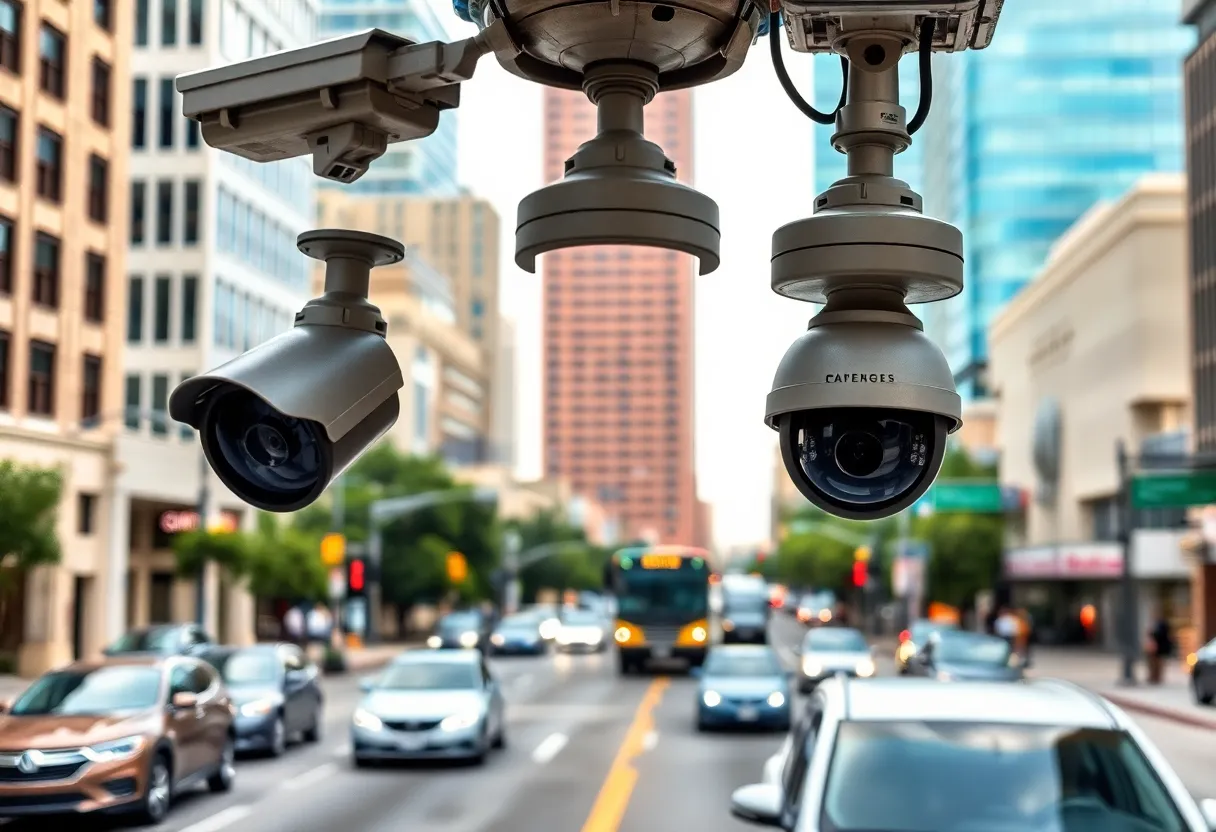News Summary
The Austin City Council has voted to extend the automated license plate reader (ALPR) program, originally set to end in March 2025, to June 2025. This decision comes amidst ongoing debates regarding civil liberties and data privacy. The program has been credited with recovering stolen vehicles and assisting in arrests, yet faces criticism over potential misuse of data. The council plans to review the program’s performance later this year to determine its future.
Austin – The Austin City Council recently voted to extend the city’s automated license plate reader (ALPR) program, originally slated to conclude in March 2025, until June 2025. This decision comes amid ongoing debates surrounding civil liberties and data privacy.
What Happened
The council’s decision was made to continue the ALPR program, which began in March 2024 as a one-year trial intended to assist police in investigating local crime. As part of the extension, a final determination on permanently implementing the program will be conducted based on an analysis from the city auditor later in the year.
Key Details of the Program
The ALPR program utilizes 40 cameras strategically placed throughout the city to capture license plate data for analysis. Data collected is stored for seven days, except in cases involving ongoing investigations or missing person cases. Law enforcement officials advocate that the collected data aids in solving serious crimes, with reports indicating that the program has led to the recovery of 241 stolen vehicles and contributed to 222 arrests, including serious felonies.
Supporters of the Program
Law enforcement leaders express strong support for the ALPR initiative, arguing it is integral to the city’s strategy to tackle violent crime. Austin Police Chief Lisa Davis has emphasized the importance of these cameras in crime prevention efforts, claiming that the ALPR system plays a key role in enhancing public safety. Officials assert that the program helps law enforcement agencies respond to and prevent criminal activities effectively.
Criticism and Concerns
Opponents of the ALPR program raise substantial concerns regarding civil liberties and the potential misuse of data by law enforcement. Critics worry that the collection of license plate information could lead to data sharing with federal agencies, posing a risk to individual rights. Council Member Mike Siegel has highlighted the political environment’s impact on civil rights, noting fear of governmental overreach in matters involving political speech and reproductive rights. Siegel, alongside Council Members Zo Qadri and Natasha Harper-Madison, voted against the extension, citing a commitment to safeguarding residents’ rights from potential invasive surveillance practices.
Official Response
In response to concerns, some city officials, like Council Member Chito Vela, argue that extending the pilot program will allow for better-informed decision-making regarding its future. The council plans to review the program’s performance based on data reports and feedback before concluding on the permanent status of the ALPR program.
Impact on the Community
The impact of the ALPR program on the community remains a focal point of discussion. Proponents claim it has been instrumental in reducing crime rates, while critics fear that the implications of surveillance might infringe on personal freedoms. The continuation of the ALPR program signals a willingness to weigh both the effectiveness in curbing crime and the protection of civil liberties.
What’s Next
The city council will conduct a thorough review of the ALPR program’s data and outcomes in the upcoming months. The future trajectory of the program will heavily depend on the analysis provided by the city auditor, which is expected to be presented to the Audit and Finance Committee in May. The decision on whether to make the ALPR program a permanent fixture in Austin’s law enforcement toolkit will be informed by this review and reflect on the ongoing dialogue surrounding public safety and privacy rights.
Deeper Dive: News & Info About This Topic
HERE Resources
Vaqueros Texas Bar-B-Q Opens in Allen, Texas
Additional Resources
- Austin Monitor
- Wikipedia: Automatic License Plate Recognition
- Community Impact
- Google Search: Austin License Plate Reader Program
- CBS Austin
- Google Scholar: License Plate Reader Program Civil Liberties
- KXAN News
- Encyclopedia Britannica: Surveillance Technology
- KVUE News
- Google News: Austin City Council License Plate Reader Extension








